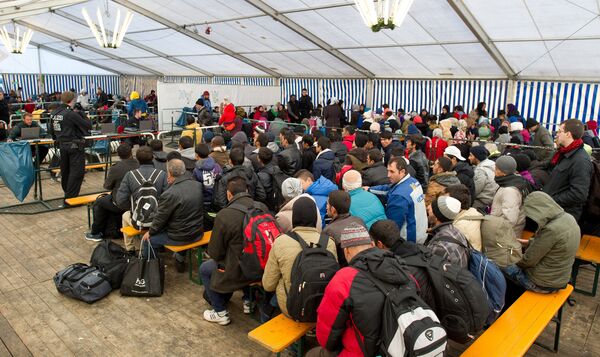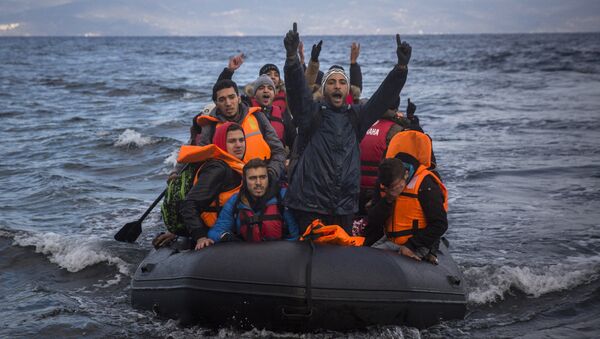EU states have failed to reach agreement over plans to relocate 160,000 people in clear need of international protection. EU sources have admitted that fewer than 200 of them have so far been relocated and that even 160,000 is a drop in the ocean compared with the numbers flooding in to Europe.
Here are 7 turning points in the #refugeecrisis of 2015 https://t.co/LJYVjxOaqI pic.twitter.com/yW49RS5BgV
— UN Refugee Agency (@Refugees) December 9, 2015
German Chancellor Angela Merkel and European Commission President Jean-Claude Juncker favor a quota system, where member states are allocated a number of refugees to take in, but this has been fiercely contested by some — especially eastern European — countries.
62% of Syrian refugees arriving in Greece were from war-torn Damascus and Aleppo https://t.co/D3Zt9O2oRg pic.twitter.com/iuMeQlshcT
— UN Refugee Agency (@Refugees) December 9, 2015
Bonino, writing in Project Syndicate, said: "Most EU member states are selfishly focusing on their own interests. This pits them against one another and has precipitated panic, putting refugees in even greater peril. A smart, comprehensive plan would calm the fears. Instead, Europe has preferred to search for scapegoats — and Greece is the latest to be targeted for blame.
"Greece has been accused of not doing enough to process and house refugees. And yet, even if the country were not crippled by economic crisis, it would be unreasonable to expect a single small country to bear the burden alone," Bonino wrote.
'We Need to Act Fast'
There is a deep division within Europe over the refugee crisis, with some countries blaming Germany and Sweden for having precipitated the mass movement of people by declaring their door open to refugees from Syria and other war-torn countries.

In mid November, the European Commission conceded: "The measures proposed by the Commission and adopted by the Council [in September] to relocate 160,000 people in clear need of international protection will allow for a significant, if partial, reduction of the pressure on the most affected Member States."
The statement said: "Central to the EU's strategy and credibility is to demonstrate that the migration system can be restored to proper functioning."
However, with more than 1.1 million refugees flooding to Germany alone this year, the plans have been widely derided, with the President of the European Council, Donald Tusk declaring: "Every week decisions are taken in Europe, which testify to how grave the situation is: reintroduction of border controls, or 'technical barriers' at the borders.
"This is a clear demonstration that we need to regain the control of our external border. Clearly not as the only action but as the first and most important action; as a precondition for a European migration policy. The clock is ticking. We are under pressure. We need to act fast. As a Union," Tusk said.


